Search Images
Browse Content (p. 1616)
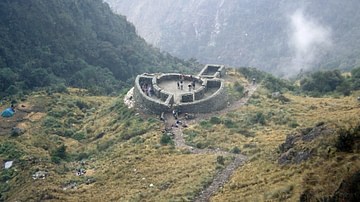
Image
Inca Road Rest Station
An Inca rest station on the Inca Trail, Peru. Such stations were built at regular intervals along most major Inca highways.
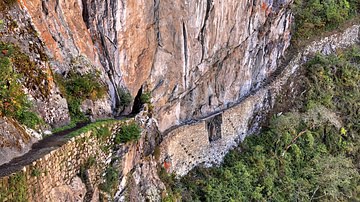
Image
Inca Road & Bridge
An Inca mountain road with bridge, approaching Machu Picchu.

Image
Inca Road System
A map of the Inca road system which included some 40,000 km of routes.

Image
Alaric Entering Athens
Detail of Alaric entering Athens, illustration, c. 1920s.
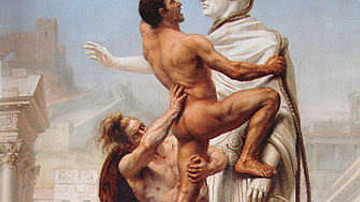
Image
Sack of Rome by the Visigoths
Sack of Rome by the Visigoths on 24 August 410, by J.N. Sylvestre, 1890 CE. Musée Paul Valéry
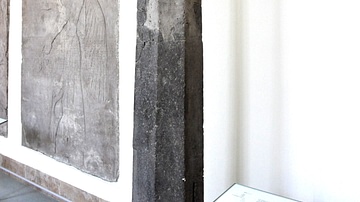
Image
Basalt Column from Ashur
A number of basalt columns and their fragments were uncovered during archaeological excavations at the "Row of Stelae" at the city of Ashur. These were brought to the city as part of an important booty. The cuneiform inscriptions on this...
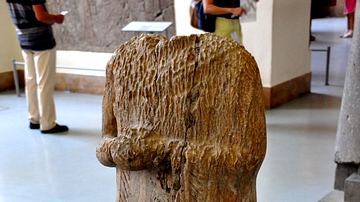
Image
Statue of a ruler of Ashur
This alabaster statue depicts a man who wears a fringed robe. It probably came from an Ishtar temple. The statue likely represents a local ruler of the city of Ashur; his name was Zariqum. This ruler was loyal to Amar-Sin, king of Ur. The...
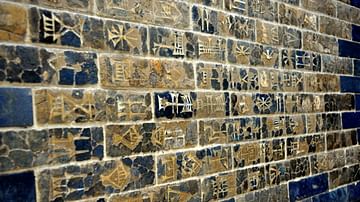
Image
Nebuchadnezzar's Inscription plaque
In this photo, part of the so-called the inscription plaque (or building inscription) of the Ishtar Gate appears. The cuneiform inscriptions of the whole text read: "I (Nebuchadnezzar) laid the foundation of the gates down to the ground...
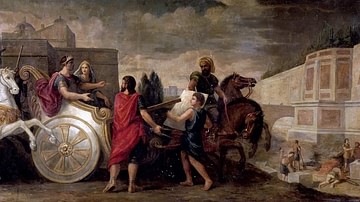
Image
Semiramis and Nebuchadnezzar Build the Gardens of Babylon
Nebuchadnezzar Ordering the Construction of the Hanging Gardens of Babylon to Please his Consort Amyitis (Nebuchadnezzar and Sémiramis) by Rene-Antoine Houasse, 1676 CE, Palace of Versailles.
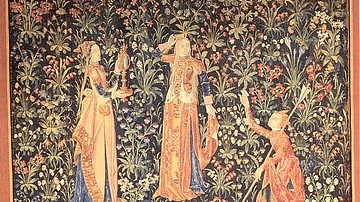
Image
Queen Semiramis with Servants
Flemish tapestry of Queen Semiramis and her servants, c. 1480 CE, now in the Honolulu Academy of Arts